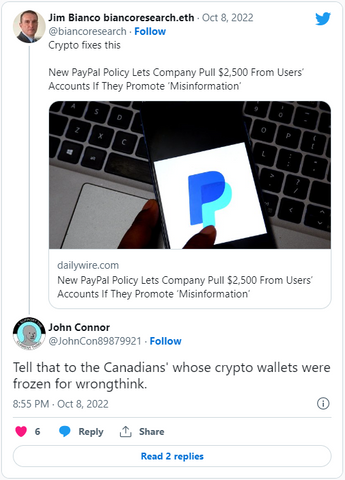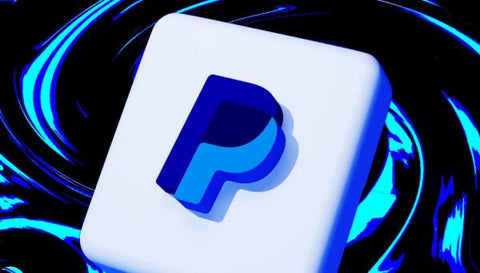
Source: COVER ART/ILLUSTRATION VIA CRYPTOSLATE
PayPal was forced to backtrack the decision after it drew the ire of its users and major stakeholders, including Elon Musk.
Twitter’s crypto community has argued that PayPal’s now-canceled misinformation policy could drive more people toward crypto adoption.
The policy
The policy would have allowed the payments company to sanction users for misinformation by fining them up to $2,500.
The firm had stated that its list of prohibited activities included “the sending, posting, or publication of any messages, content, or materials” that “promote misinformation” or “present a risk to user safety or wellbeing.”
PayPal continued that it would independently review each offense, and the user may be liable for up to $2,500 in damages for each violation. In addition, only actions on the PayPal platform would be subject to the policy.
The firm, however, was forced to backtrack on the decision after it drew the ire of its users and major stakeholders, including Elon Musk.
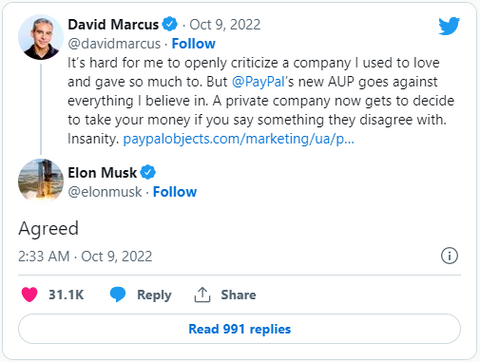
The company’s spokesperson reportedly said:
“PayPal is not fining people for misinformation, and this language was never intended to be inserted in our policy. We’re sorry for the confusion this has caused.”
Crypto community calls for crypto adoption
Those in the crypto community have argued that this move could be the catalyst that drives more people into the industry.
Santiago Santos, the host of the crypto podcast Empire, tweeted, “PayPal censoring speech and blocking payments is the best thing that has happened for the adoption of crypto payments with stablecoins. At this rate, web3 adoption will happen more because of the reckless actions of web2 companies.”
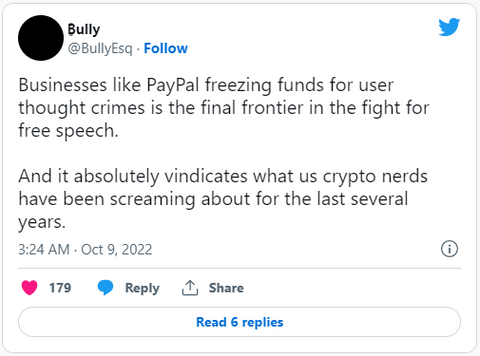
Others also agreed with this view, with the president of Bianco Research, Jim Bianco saying that “crypto fixes this.”
Meanwhile, James Lavish added that this shows what to expect with CBDCs. “You think PayPal is bad. Wait until you see what they can do with CBDCs,” he said.
However, not everyone believes that crypto exactly fixes censorship. Some clarified that only Bitcoin (BTC) is above censorship, and every other token is mostly centralized and prone to censorship.
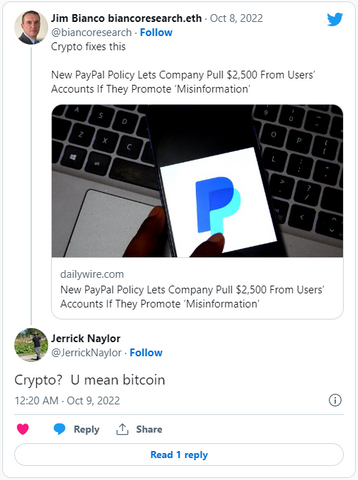
They gave examples of the recent halt of the BNB Chain, the freezing of crypto assets during the Freedom Convoy protest in Canada, and the US OFAC decision to sanction Tornado Cash.
